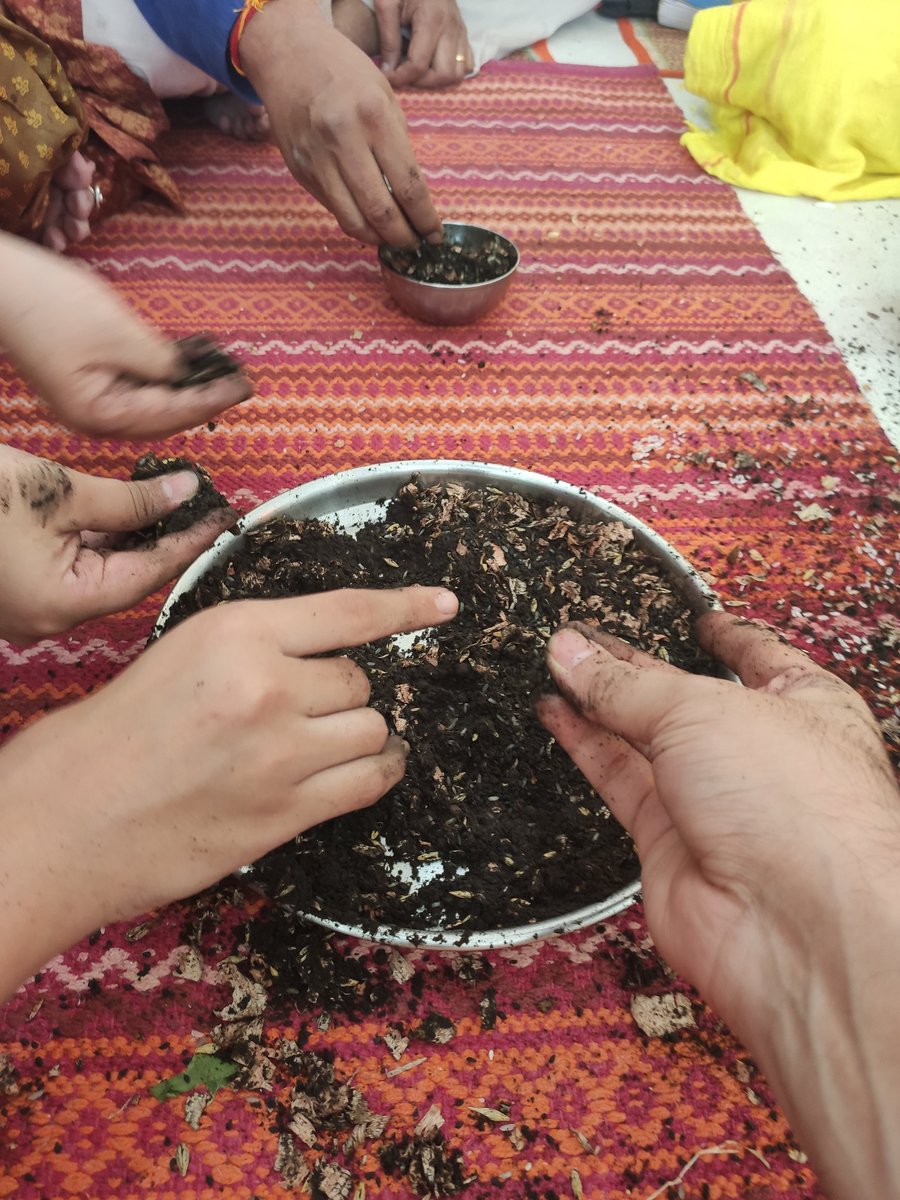
[Thread]
What does it mean when elders bless us in Sanskrit as “āyuṣmān bhava” (आयुष्मान् भव, for a male) or “āyuṣmatī bhava” (आयुष्मती भव, for a female)?
The commonly understood meaning is “may you have a long life”.
1/n
What does it mean when elders bless us in Sanskrit as “āyuṣmān bhava” (आयुष्मान् भव, for a male) or “āyuṣmatī bhava” (आयुष्मती भव, for a female)?
The commonly understood meaning is “may you have a long life”.
1/n
This is correct, for the primary meaning of ‘āyuṣmat’ (आयुष्मत्), from which ‘āyuṣmān’ and ‘āyuṣmatī’ are derived, is “long-lived” (Apte).
However, this is not the only meaning.
The suffix ‘-mat’ in ‘āyuṣmat’ also has the sense of praise.
2/n
However, this is not the only meaning.
The suffix ‘-mat’ in ‘āyuṣmat’ also has the sense of praise.
2/n
Hence, another meaning of “āyuṣmān bhava” or “āyuṣmatī bhava” is “may you have a praiseworthy (=noble) life”.
This meaning, “having a praiseworthy/noble life”, is not listed in Sanskrit dictionaries. However, it is as per the rules of Sanskrit grammar.
3/n
This meaning, “having a praiseworthy/noble life”, is not listed in Sanskrit dictionaries. However, it is as per the rules of Sanskrit grammar.
3/n
In Kālidāsa’s Meghadūta (2.38), the hero addresses the cloud as ‘āyuṣman’ (vocative form).
A cloud does not have a long life, for it vanishes after a few days when it rains.
So why does the hero call the cloud ‘āyuṣman’?
4/n
A cloud does not have a long life, for it vanishes after a few days when it rains.
So why does the hero call the cloud ‘āyuṣman’?
4/n
In his Sanskrit commentary on this verse, Māllinātha explains the word ‘āyuṣman’ as ‘paropakāra-ślāghya-jīvita’ (परोपकारश्लाघ्यजीवित, “O you whose life is praiseworthy on account of ‘paropakāra’ or benevolence”).
M R Kale translates it as “O you of long (or noble) life”.
5/n
M R Kale translates it as “O you of long (or noble) life”.
5/n

Thus, the blessing “āyuṣmān bhava” (आयुष्मान् भव, for a male) or “āyuṣmatī bhava” (आयुष्मती भव, for a female) means both, “may you have a long life” and “may you have a praiseworthy/noble life”.
Such is the beauty of Sanskrit.
n/n
Such is the beauty of Sanskrit.
n/n
• • •
Missing some Tweet in this thread? You can try to
force a refresh















